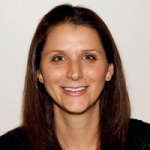Medicine from the heart . . . Amanda Vitko
On Thursdays, the Daily Voice showcases selected Thursday Morning Memos, reflective essays about clinical experiences written by faculty, alumni, residents and students of the Department of Family Medicine & Community Health and, occasionally, contributors from other departments. Thursday Morning Memos is UMass Medical School’s homegrown version of narrative medicine, in which the authors process their experiences through writing. To learn more, visit: http://www.umassmed.edu/news/articles/2011/personal_stories.aspx.
|
As a follow-up on the residents’ community health months, Hahnemann family medicine intern Amanda Vitko, MD, writes about knowing our local resources. Dr. Ian McWhinney, known as the "Father of Family Medicine," wrote about this in his Textbook of Family Medicine years ago. Some things never change.—Hugh Silk, MD |
 |
As a group, we chose to focus on the topic of homelessness as we had all had multiple encounters with patients who struggle to keep stable housing for one reason or another. When we set out to start gathering information on available resources for homeless persons in the Worcester area, I was struck by just how many different programs there were available. I was equally impressed by how quickly we were able to get a list together from a single website that seemingly had all of the information organized by topic. This is a luxury I was not accustomed to during the four years I spent in New Orleans, where social services are at times difficult to identify and locate.
As if on cue, a young family who had not been seen at Hahnemann since their youngest (now 2 years old) was 2 months old, established me as their daughters’ PCP. Upon questioning about why their daughters hadn’t seen a doctor in nearly two years, all I was able to work out was they had not had stable housing and had been bouncing from home to home. They had virtually been “lost to follow-up” for this reason. I found myself wondering how it was possible, with so many resources in the area, that a family like this could experience such instability. More importantly, how had we as a medical community allowed these young girls to fall through the cracks?
After exploring the resources for homeless families more thoroughly throughout these two weeks, I’ve come to realize that just having a system in place doesn’t mean it is easy to navigate. I would imagine that without some guidance or direction from someone who knows the resources, it would be difficult for a young family to navigate the system and find the right resources. Additionally, while I personally might feel that taking my son to the doctor on a routine basis is a healthy practice, without proper education, not all of our patients realize the importance of seeking routine care for themselves and their children.
As a family physician, I have always understood that it is important to know my community and the resources it offers. However, this month has made me realize that this isn’t always enough. It is important to assess whether or not my patients understand what is necessary in order to use the resources provided by the community, and why it is important for their health and well-being to take full advantage of what is provided.